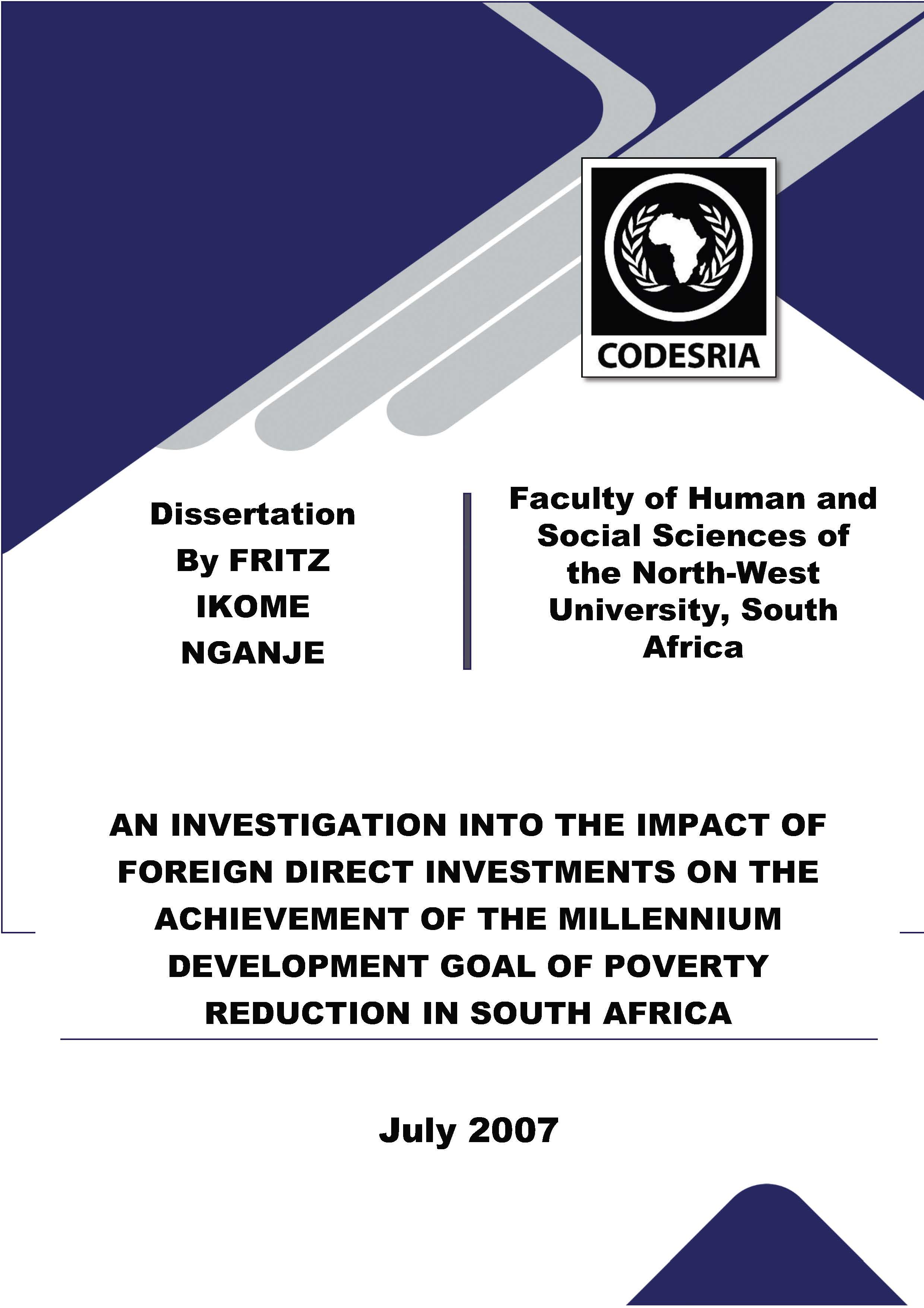AN INVESTIGATION INTO THE IMPACT OF FOREIGN DIRECT INVESTMENTS ON THE ACHIEVEMENT OF THE MILLENNIUM DEVELOPMENT GOAL OF POVERTY REDUCTION IN SOUTH AFRICA
Mots-clés :
INVESTIGATION, INVESTMENTS, DEVELOPMENT GOAL, SOUTH AFRICASynopsis
The study set out to examine the impact of foreign direct investments (FDI) on efforts to significantly reduce poverty in South Africa by 2015. The research drew largely from official documents, research findings and survey reports. Primary data were also
collected through interviews with experts in the field. The study found that in the South African context, the contributions of FDI to employment has been very insignificant since the end of apartheid. As such, for a country with unemployment rates in excess of 40%, the benefits of FDI in reducing poverty need to be found elsewhere than in their potential to engender growth that would absorb the poor into the active labour force and provide them with some means of income. Moreover, it was established that FDI have directly and indirectly contributed to skills upgrading, particularly amongst high-skilled blacks. But in doing so, they have also worsened the skills bias in the labour market. This development was found to have deepened inequality, especially among blacks, with serious negative implications for the realization of the MDG of poverty reduction.
The study also found that tax revenues collected from foreign firms, just like those collected from their domestic counterparts contribute greatly to sustain the government’s poverty reduction programmes. However, it was also noted that in some
municipalities, the incidence of poverty has been amplified by the operations of foreign firms that have assumed the role of service providers






